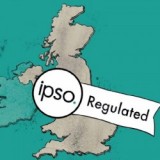 A regional daily’s concern over repeating an inaccuracy in a correction has led to the newspaper being rapped by the press watchdog.
A regional daily’s concern over repeating an inaccuracy in a correction has led to the newspaper being rapped by the press watchdog.
The Independent Press Standards Organisation has found against the South Wales Echo after it failed to provide the Independent Press Standards Organisation with the proposed wording of a correction.
The issue arose after the Cardiff-based Echo covered the sentencing of drug dealer Matthew Cleary, who was jailed for 32 months.
The newspaper reported Cleary’s prropety at Clos Taf, in Cardiff had been searched by police and cannabis had been found, although he claimed this was not the case and he did not reside there.
Complaining under Clause 1 (Accuracy) and Clause 2 (Privacy) of the Editors’ Code of Practice, Cleary also alleged further inaccuracies about the Echo’s coverage.
These concerns had been raised with the Echo on 22 December 2022, when the story was published, and the Echo said the court had confirmed the following day that Clos Taf had not been searched.
The Echo removed the reference to the address and the online story was updated.
Denying a breach of Code, the paper said it was stated in court that Mr Cleary’s home was searched, and the address listed for Mr Cleary on the court list was Clos Taf.
Therefore, it was reasonable for the publication to report that this was the address which had been searched.
During IPSO’s investigation the Echo provided an excerpt of the court register which contained the Clos Taf address and a copy of the court reporter’s notes, which it said demonstrated it was heard that the items listed in the story were found at Mr Cleary’s “home”.
The Echo initially decided not to publish a correction as it would result in the address being republished, but later offered to publish a footnote correction on 6 February – an offer reiterated on 29 March.
It indicated the correction would correct the address, but did not propose specific wording.
IPSO found that, where the court register was an official document, and it had been heard in court that Cleary’s home had been searched, reporting that Clos Taf was the address that was searched by the police did not represent a failure to take care not to publish inaccurate, misleading or distorted information.
However, the Committee acknowledged that the address included in the online story had not been searched by police, nor were cannabis and the “high-spec” items found in the property.
It was therefore inaccurate on these two points, and the inaccuracy was significant where the story had linked criminal activity to the Clos Taf address – a potentially damaging and serious claim.
While the Echo had offered a correction in a sufficiently prominent location and had indicated it would correct the inaccurate address, it had not made clear the precise wording of the proposed correction.
Therefore, the Committee was not in a position to assess whether its proposed remedial action corrected the initial inaccuracy.
IPSO acknowledged that the Echo was concerned that the complainant did not want the inaccurate address to be republished, but where the Committee was unable to assess whether the correction satisfied Clause 1 (ii) and the offer of a correction had not been offered promptly, this represented a breach of Clause 1(ii).
The complaint was partially upheld under Clause 1, and the full adjudication can be read here.
After an initial ruling had been published, the Echo complained to the Independent Complaints Reviewer about the process followed by IPSO in handling the complaint.
The Independent Reviewer found that the IPSO process was flawed, as the Committee had not taken the Echo’s offer of a correction into account when making its decision.
The complaint was therefore returned to the Committee, which issued the subsequently published ruling.

 Follow HTFP on Twitter
Follow HTFP on Twitter